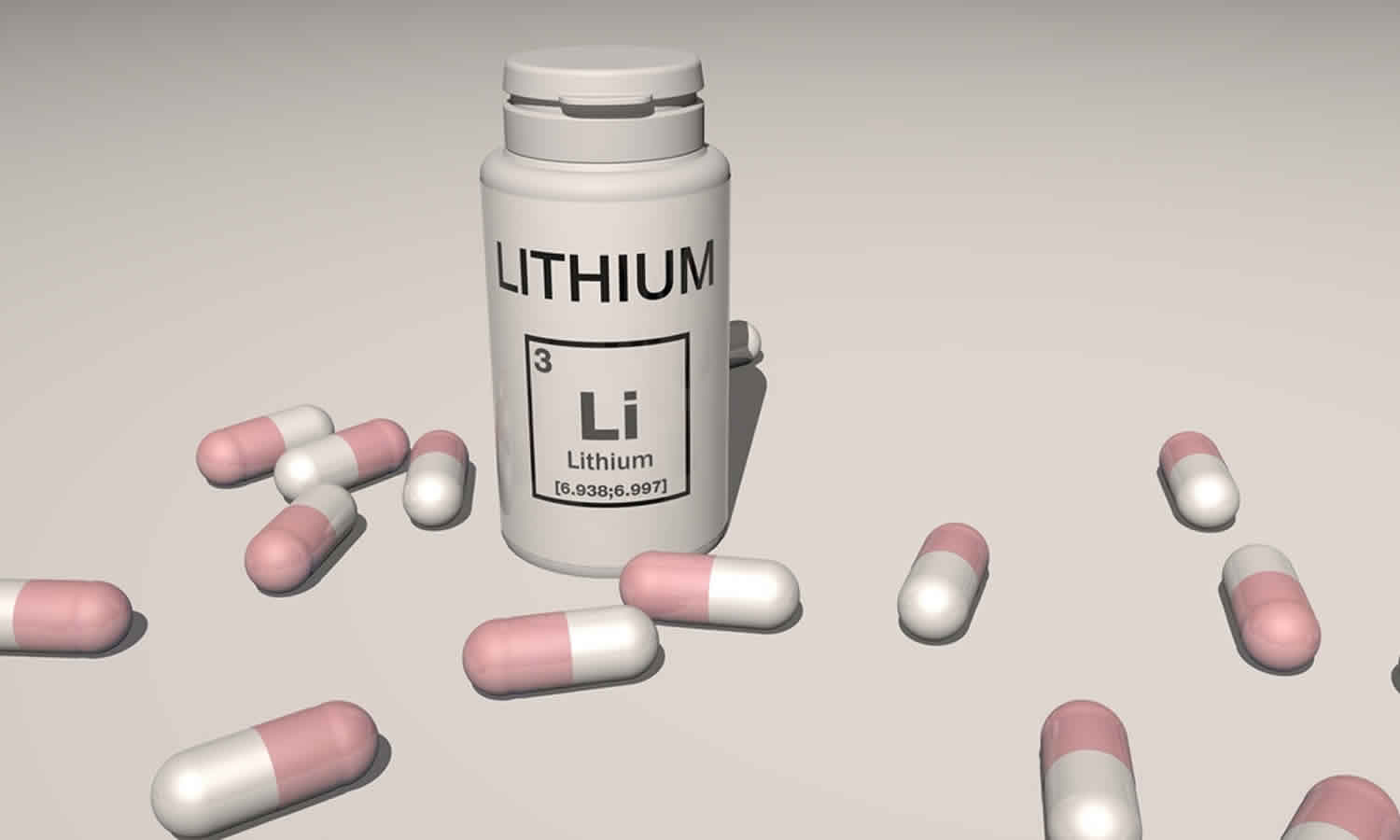
Key facts
- Lithium is a mood stabilising medicine used to treat certain mental illnesses such as bipolar disorder.
- Lithium may need to be taken for a long period of time — do not suddenly stop taking it without speaking to your doctor.
- Short-term side effects can include nausea and diarrhoea, muscle weakness or a dazed feeling. A long-term side effect can be weight gain.
- Your lithium dose needs to be adjusted to suit you. Go for your blood tests to make sure you have the right amount in your system.
- Make sure your doctors and pharmacist know if you are taking lithium.
What is lithium?
Lithium is a mood stabilising medicine used to treat certain mental illnesses, such as:
- mania (feeling highly excited, overactive or distracted)
- hypomania (like mania, but less severe)
- bipolar disorder, where your mood changes between feeling very high (mania) and very low (depression)
Lithium can also be used to treat schizophrenia and some types of depression.
If you have a mental illness, your doctor will work with you to decide if a medicine is right for you. Lithium is just one option.
You might also know lithium as a chemical element with the symbol ‘Li’.
How does lithium work?
Lithium is a mood stabiliser, but the exact way that it works is not known. Lithium may work by changing the release of chemicals like dopamine or serotonin in your brain.
Taking lithium helps you to have more control over your emotions. It helps you cope better with bipolar mood swings.
It may take several weeks to months for lithium to start working. At first you may need to be on other medicines at the same time. These will help you to stay calm. You may need to be in hospital when you start lithium treatment.
The amount of medicine that you need varies from person to person. Your dose may depend on:
- your age
- your general health
- other medicines that you take
If you take lithium, you will need to see your doctor regularly. Your doctor will arrange blood tests to make sure you are not taking too little or too much lithium.
Lithium is not addictive.
Do not stop taking lithium suddenly. Always talk to your doctor before making any changes to your medicines.
What forms of lithium are available?
Lithium carbonate is the active ingredient in lithium medicine.
You may be prescribed a slow-release form of lithium tablets. Slow-release tablets must be swallowed whole with water. They break down slowly in your body. This spreads out your dose of lithium through the day.
What are the benefits of lithium?
Lithium helps reduce feelings of mania — excited, high mood, distracted. It also helps to treat bipolar episodes.
Your doctor may prescribe lithium for long periods of time (months or years). It’s important to continue treatment, even when you feel well. Lithium is not a cure, but it is able to help control symptoms and prevent relapse while you are taking it.
Important things to remember when taking lithium
It’s best to take lithium exactly as the instructions tell you. Some other tips are to:
- take lithium with food
- eat and drink normally — don’t follow a low salt diet
- drink plenty of fluids in hot weather and during exercise to avoid dehydration
- take care if you are driving as lithium can make you sleepy
Tell your doctor if you:
- are taking any other medicines as they may interact with lithium
- have any heartor kidney problems, or have been told to reduce your salt intake
- are pregnant, planning to become pregnant or are breastfeeding
- are concerned about the side effects of lithium
Follow your doctors’ instructions about having lithium blood tests. The results will help get your dose right.
Also, remember to talk with your doctor and pharmacist if you take too much lithium or miss a dose.
You should also tell your pharmacist that you are taking lithium when you buy new medicines. This includes over-the-counter medicine and vitamin supplements.
What are the side effects of lithium?
Lithium can cause side effects.
Short-term side effects
You may have some short-term side effects when you start taking lithium. These can also happen when you change your dose.
These side effects often improve or disappear after a few days:
- stomach discomfort
- mild nausea or diarrhoea
- vertigo or dizziness
- muscle weakness
- feeling dazed
Long-term side effects
Possible long-term side effects include:
- shaking hands
- feeling very tired
- feeling very thirsty
- frequent or increased amount of urination (pee)
- stomach upset or weight changes
- metallic taste in your mouth or increased saliva
- acne or rash
- headache
These side effects may continue but try to also remember the benefits of lithium on your mania or depression symptoms when looking at this list.
If any side effects are worrying you, see your doctor.
If side effects suddenly get worse, it may be a sign of ‘lithium toxicity’, or too much lithium in your body (see below). If this happens, call your doctor immediately.
Long-term effects on your body
Taking lithium for long periods of time can affect your kidneys and your thyroid gland.
Your doctor will recommend blood tests to check your:
- kidney function
- thyroid gland
- parathyroid gland
What is lithium toxicity?
Lithium is a medicine where the amount in the body needs to be just right. If the level is too low, it won’t work properly. If it’s too high, you can get more side effects — this is lithium toxicity.
Signs of lithium toxicity are:
- increased stomach pain, vomiting or diarrhoea
- increased muscle weakness, shaking or twitching
- severe drowsiness or dizziness
- staggering or trouble walking or slurred speech
- dry mouth, very thirsty
- ringing in the ears (tinnitus)
- blurred vision
- swelling of your face, mouth, or tongue that may cause trouble breathing or swallowing
Tell your doctor straight away or go to the nearest hospital emergency department if you notice any signs of lithium toxicity.
You can develop lithium toxicity suddenly. This can happen if you:
- take too many lithium tablets at once
- combine lithium with some other medicines
- get very dehydrated
It’s important to take the dose that is right for you. If you think you or someone you care for may have lithium toxicity, it’s important to talk to a doctor immediately.



